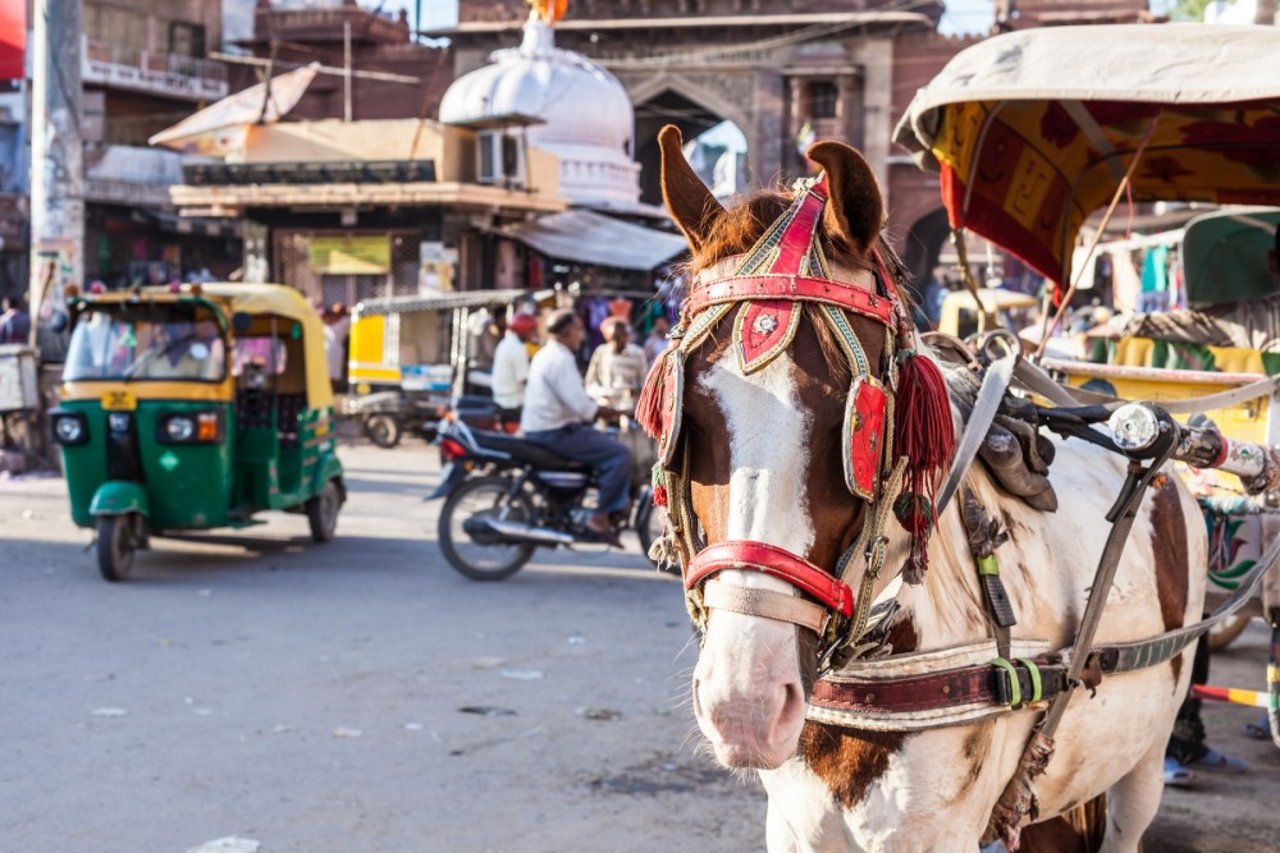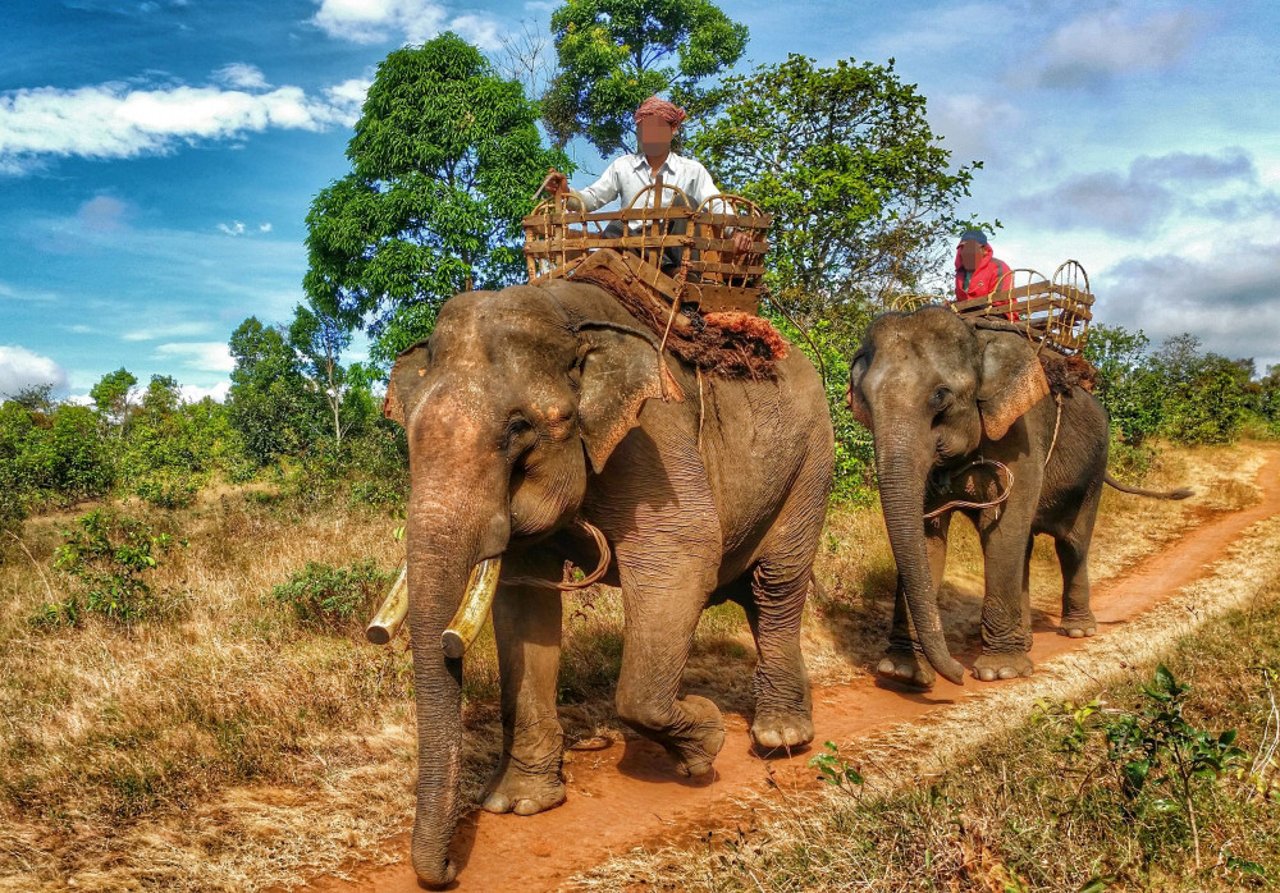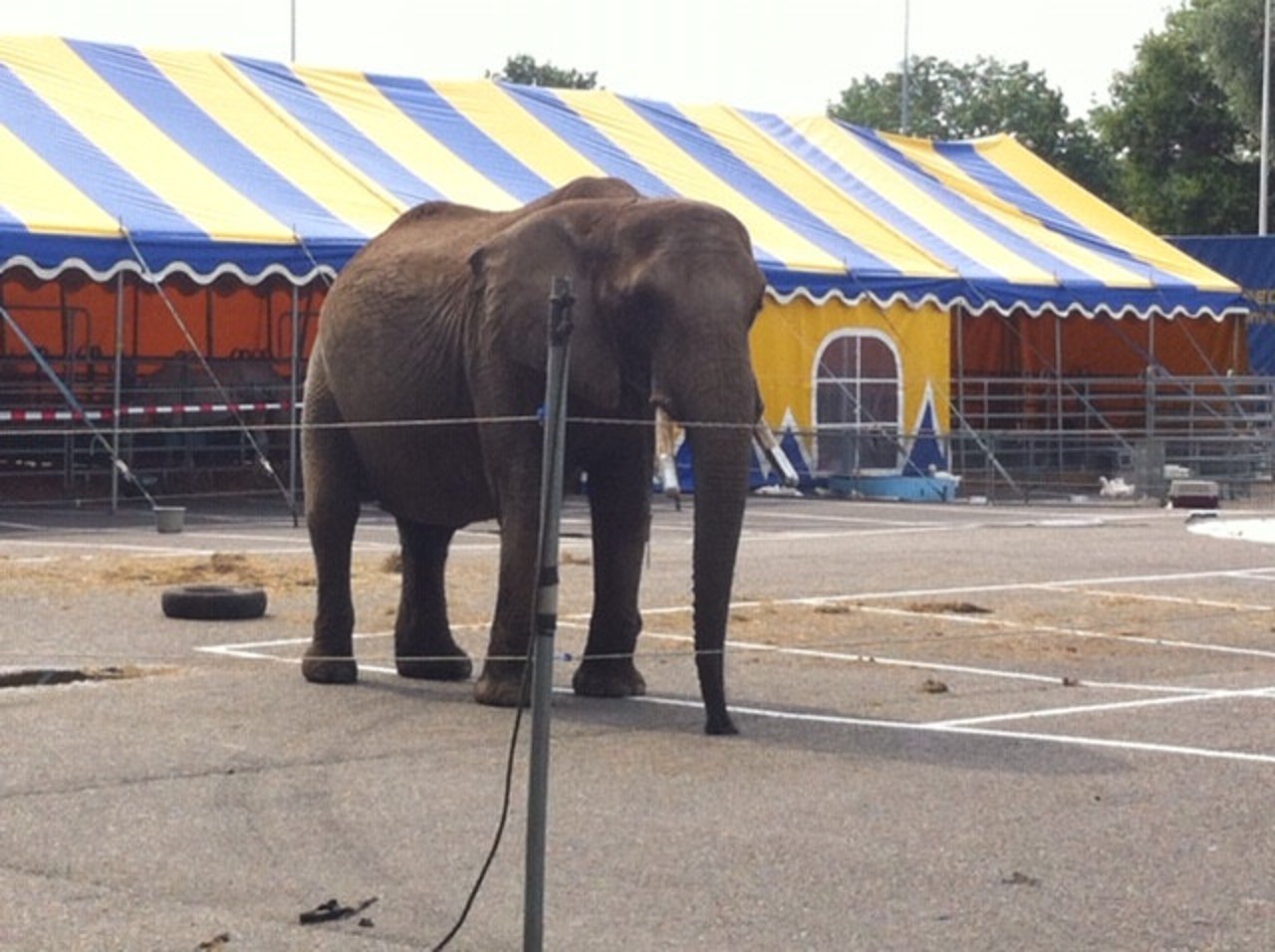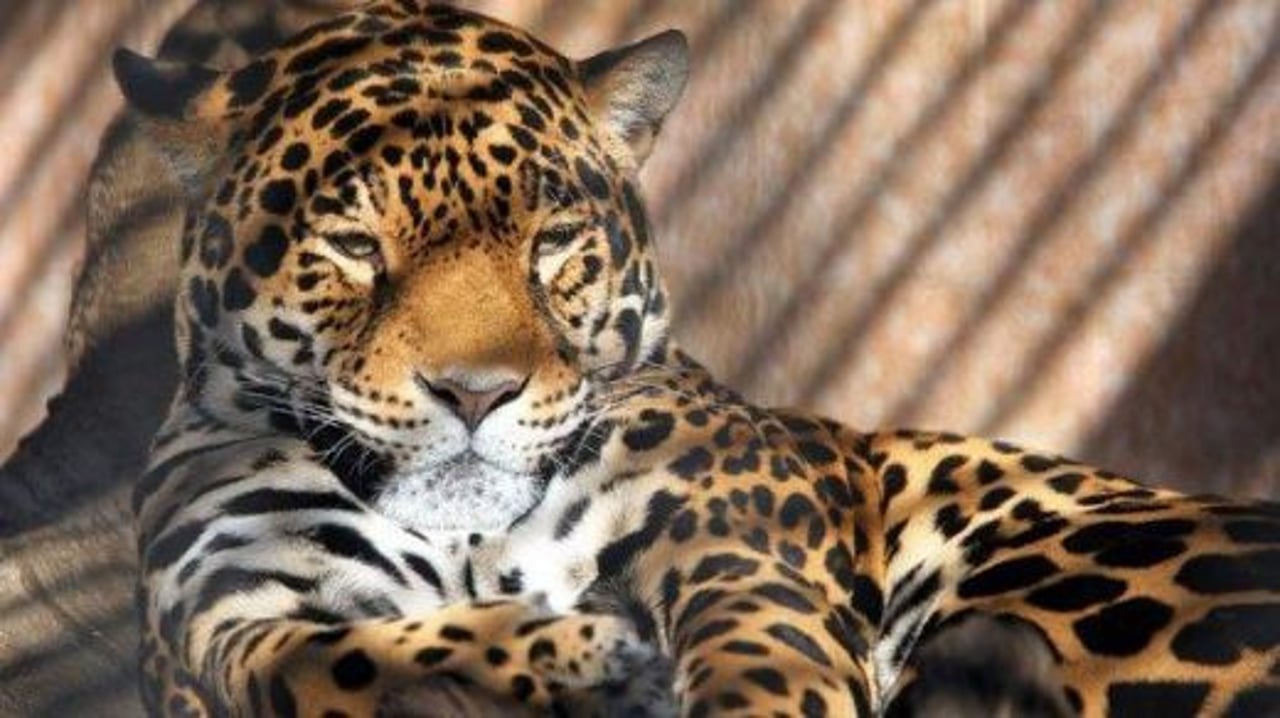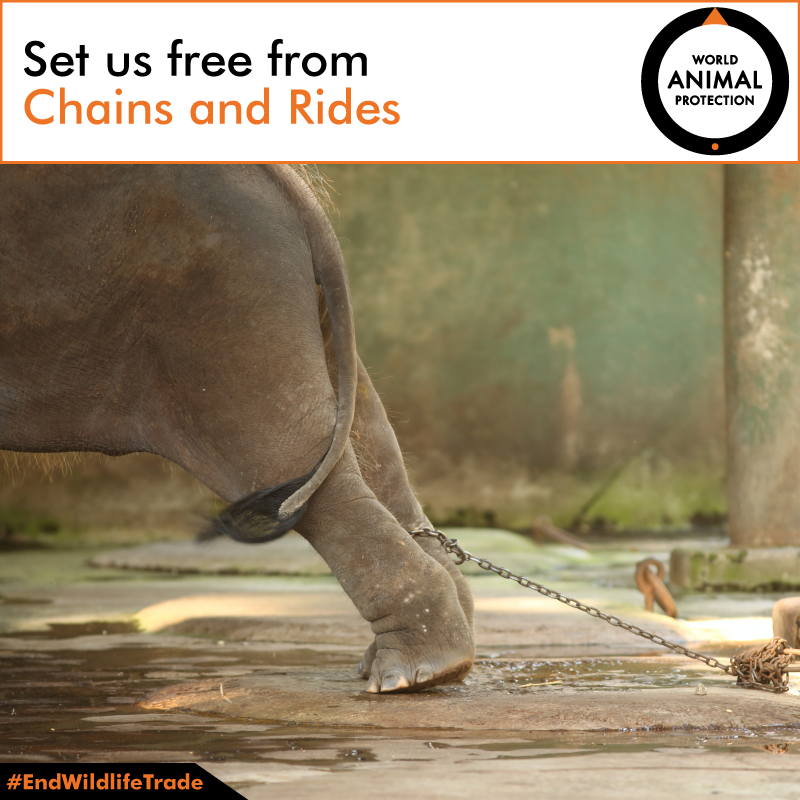
Since ages we have seen animals being used for various purposes. Be it be horses, camels, elephants for transportation, wars or the wild animals for entertainment purposes, or even the domestic animals for farm work and food. It might be hard to accept that all of this is termed under cruelty against animals.
Abuse of innocent lives
Have you ever visited the northern Indian region and ridden yaks or clicked photos of monkey handlers?
Ever rode elephants or saw them doing tricks?
Ever thought about watching a Dolphin Show?
Well, believe it or not, if you answered yes to any one of the questions above, you may have contributed in the abuse of an innocent life.
Abuse of animals through Rides
Horses:
Almost 80% of north Indians might have visited places of pilgrimage in India. It is almost 10-12kms of walking up a mountain. While it is considered sacred to walk the whole way but many pilgrims prefer riding a horse or mule for their journey.
Image credit: Deposit Photos ( Horse used for giving rides in India)
Imagine being around 400kg themselves, having met a bare minimum diet with a continuous journey of n number of kilometers while carrying a human being of almost 80kg on their backs along with a lot of other luggage. They are expected to do it throughout their lives. Some of them have multiple deformities in their legs and backs and having almost no help to look after for them and hence are not even fit to do the job. Being born becomes a mere torture for these voiceless sufferers.
Elephants:
You might have seen beautiful saddles attached to the back of elephants, making a kind of royal seat for the person riding the Elephant. It might be shocking to hear that elephants were never really a riding animal, their back and spine are designed to support only their large structure and not to carry any more weight. Having a saddle attached will also cause rubbing and irritation to the skin creating more skin lesions.
Image Credit: World Animal Protection ( Elephants used for giving rides)
They are even exposed to a very intense and brutal training (phajaan) for making them viable for being a part of the tourism industry and submitting themselves to the handlers.
Exploitation of animals in the Circus and Sea World
No animal can follow the commands or befriend a human being without being exposed to trainings. And being a wild animal, training is a subtle word for extreme torture and captivity faced by them.
In a circus when you see an elephant dancing or balancing on small objects, it is not because they get rewards in return for it but because they have been subjected to such a training after which they have submitted their lives to the handler in order to save themselves from even more abusive behavior.
Image Credit: World Animal Protection ( Animals like elephants are used for entertainment in circus and shows)
For a mere entertainment of a few people, countless number of animals like monkeys, tigers, birds, are subjected through an extremely monstrous training which involves whips, electric prods, long confinements to discipline them.
What a delightful sight it is to watch the dolphins and other marine life do tricks of all sorts when instructed, what we don’t realize is the amount of drilling they have been through to perform this and what for? For many more years in captivity. They could have been free in the oceans swimming in the way they wanted to but now, their whole life is restricted to a much smaller tank.
Zoos -- Animals also experience boredom, depression and loneliness
Ever been to a zoological park on a school trip, did you see various kinds of animals behind the walls and cages. They look fascinating don’t they, showcasing their massive or charming stature? It’s hard to accept they have been locked up in those cages since tens of years. Even though some zoos follow the food and space requirements, the animals are being held in the bare minimum roaming spaces, that cage isn’t just for their physical but also mental captivity. Even they experience boredom, depression, loneliness which is commonly referred to as ‘Zoochosis.’ Many behavioral problems can be seen in the animals experiencing this syndrome which is not particularly treated by a proper medication.
Image Credit: World Animal Protection ( Animals when caged feel lonely and depressed)
So, you might want to think again before paying the entry fees of these zoos.
Use of wild animals in Games or Rides
It feels nice to see even animals performing things that humans do but try and ask this question to yourself that, is that natural? Is that something which benefits the animal? Or is it just something we make the animals do to establish our superiority over them.
Training the animals to play basketball, run for races, dodge hurdles, might feel like a give and take relationship, humans get the entertainment and animals get the food and shelter.
But somehow, I think we all know the kind of standards that are being followed in their trainings, shelter and transportation which is involved in it. Some of them are not even trained, people just exploit their natural behavior to achieve a sadistic pleasure. Enforcing positive reinforcement trainings is possible but not everyone follows that as it is time and labor consuming and without that, sports can only be considered under animal cruelty.
Humans are becoming more compassionate about animals nowadays but still they unknowingly hurt them. It’s time we step up or at least withdraw our share from such activities.
Disclaimer: The opinions expressed in this article are those of the author and not necessarily those of World Animal Protection.
About the Volunteer: Priyal Roy is a veterinary student pursuing her Bachelor’s degree in Veterinary Sciences from Mumbai Veterinary College. She is a member of the International Association Of Veterinary Students and is committed to animal welfare.
